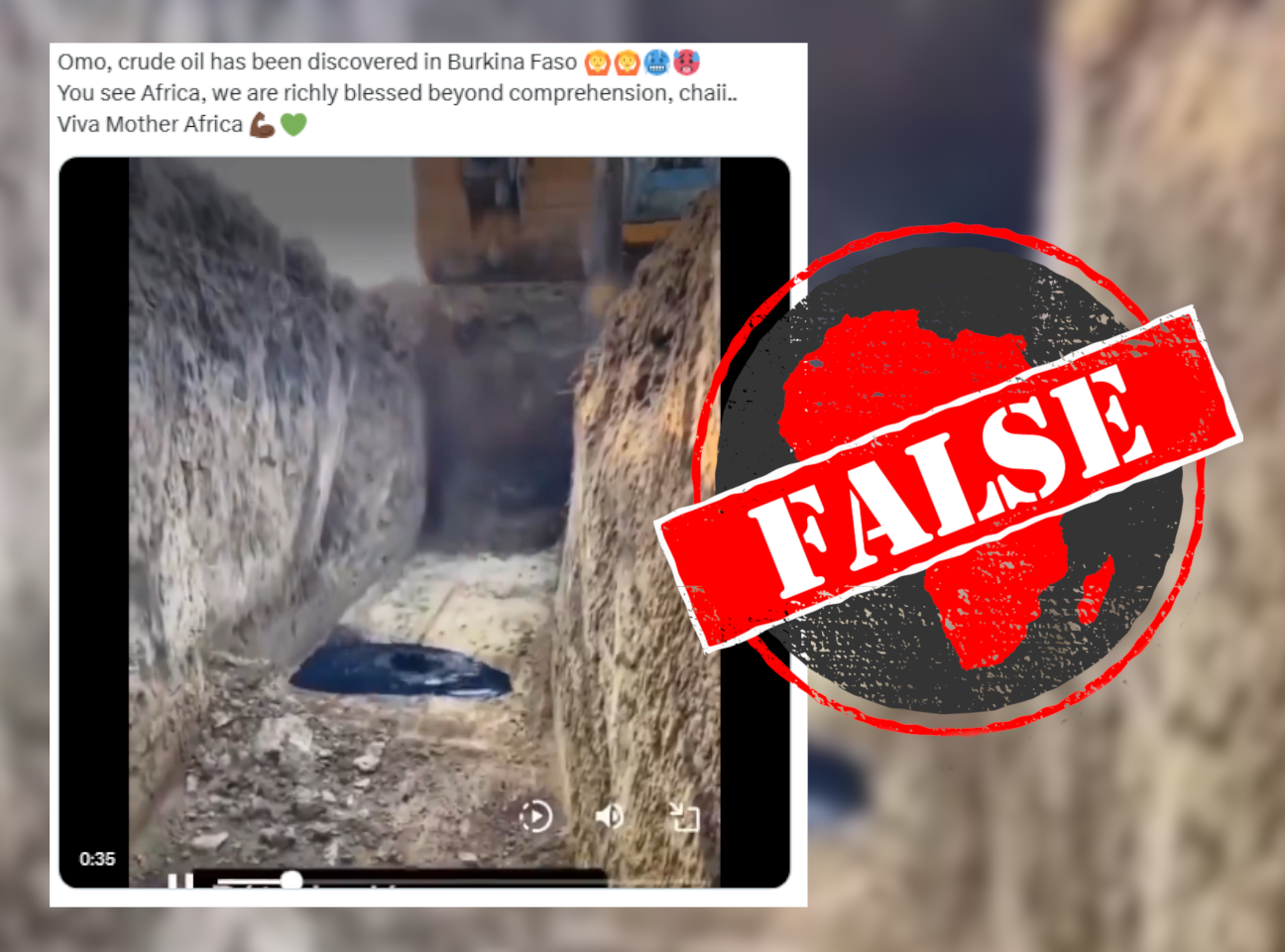IN SHORT: Social media posts claiming oil has been discovered in the West African country of Burkina Faso are false. The video shared as proof shows a sewage spill.
A video of a pool of dark liquid bubbling up from a hole in a trench dug by an earth-mover is circulating on social media with the claim it shows crude oil discovered in the West African country of Burkina Faso in January 2024.
Almost all of the video’s captions read: “Crude oil has been discovered in Burkina Faso. What are your thoughts on this?”
Burkina Faso is a small country to the west of oil-rich Nigeria. But it does not produce oil, and is said to have no oil reserves.
Does the video really show a recent discovery of crude oil in Burkina Faso?

‘We wish that was oil!’
A Google Lens search of frames from the video led Africa Check to the original video, a Facebook reel posted by a plumbing company in the northern US state of Minnesota on 4 January.
Its caption reads: “We wish that was oil! We replaced this sewer this past week that was packed full of tree roots and had 4 patches in the 6” [inch] clay piping. It went well and we were all backfilled by about 12.30pm!”
The bubbling liquid in the video is not oil discovered in Burkina Faso. It’s sewage escaping from a blocked sewer in the US.
Republish our content for free
For publishers: what to do if your post is rated false
A fact-checker has rated your Facebook or Instagram post as “false”, “altered”, “partly false” or “missing context”. This could have serious consequences. What do you do?
Click on our guide for the steps you should follow.
Publishers guideAfrica Check teams up with Facebook
Africa Check is a partner in Meta's third-party fact-checking programme to help stop the spread of false information on social media.
The content we rate as “false” will be downgraded on Facebook and Instagram. This means fewer people will see it.
You can also help identify false information on Facebook. This guide explains how.


Add new comment